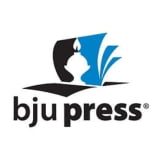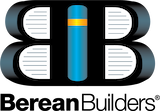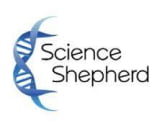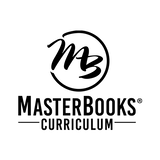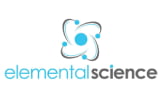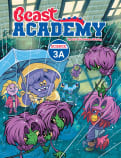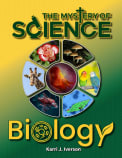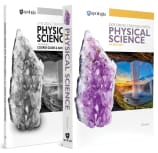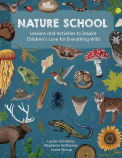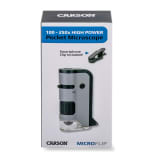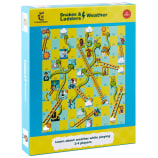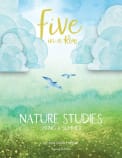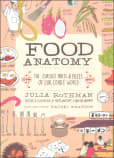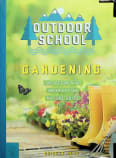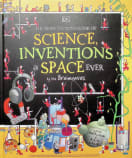- Comprehensive Science Programs
- Other Science Programs / Unit Studies
- Supplemental Science Resources
- Science Instructional / Teacher Resources
- Science Instructional Workbooks / Activity Books
- Science Activity & Experiment Resources
- Science General Informational / Textual
- Science Topical Informational / Textual (Series)
- Reference Books for Science
- Science Notebooks & Journals
- Science Coloring Books
- Other Science Activity Books
- Science DVDs / Videos
- Science Charts, Posters and Cards
- Science Tools / Supplements
- Science Instructional / Teacher Resources
- Science Kits, Models, Games & Puzzles
- Science Supplies / Equipment
- History of Science / Scientific Discovery
- Creation Science / Origins of Life
- Dinosaurs & Fossils
- Earth Science
- Astronomy / Space
- Weather / Meteorology
- Geology
- Nature
- Nature Instructional / Teacher Resources
- Nature Informational / Textual Resources
- Nature Activities
- Wilderness Survival / Outdoor Skills / Camping
- Outdoor Survival Tools
- Field Guides / Identification Guides
- Nature Logs / Journals
- Nature Activity Books / Coloring Books
- Nature Tools & Supplements
- Nature Games, Puzzles & Activities
- Nature Instructional / Teacher Resources
- Ecosystems / Biomes / Habitats
- Botany
- Zoology / Animal Life
- Human Body / Anatomy
- Human Body/Anatomy Curriculum
- Human Body Instructional
- Human Body Reference Books
- Human Body Informational - General
- Human Body Informational - Specific Systems
- Human Body Activity Books
- Anatomy Coloring Books
- Human Body Software & Videos
- Human Body Charts, Posters & Visuals
- Human Anatomy Models & Activity Kits
- Human Body Puzzles & Games
- Human Body/Anatomy Curriculum
- Health / Nutrition / Fitness / First Aid
- Life Science
- Biology
- Psychology
- Chemistry
- Physical Science
- Physics
- Physics Curriculum
- Physics Informational with Activities / Experiments
- Physics Informational / Textual Resources
- Physics Visuals, Supplements & Tools
- Physics Kits & Models - General
- Magnets / Magnetism
- Electricity - Kits & Games
- Solar / Wind / Alternate Energy Kits
- Flight / Rocketry / Aerodynamics Kits
- Hydraulic / Liquid Mechanics Kits
- Physics Curriculum
- Engineering
- Computer Science / Programming
- New Products - Science
- Science / Health / Nature Clearance Sale Items !!
- Not Yet Categorized Science Products
Science, Health, and Nature Programs
Important considerations for homeschool science resources may include religious content, teaching approach, home-friendly labs if there are special lab supplies needed for those labs. Whether you’re looking for a science curriculum, STEM labs, science notebooks, experiments, lab supplies or science games, you can find a wide selection of homeschool science resources here.
Science Curriculum by Grade
Download the Science Curriculum Comparison Chart.
Featured Products in Science
Science by Topic
These icons are designed to help you quickly understand and learn important information about our products.
Teaching Method
Traditional
Teacher-centered curriculum commonly used in classrooms that may include a text, teacher manual, tests, etc.
Charlotte Mason
A methodology based on the work of a 19th century educator who maintained that children learn best from literature (Living Books), not textbooks.
Classical
A methodology based on the Latin Trivium (three stages of learning), including the grammar stage (memorization and facts), logic stage (critical thinking), and rhetoric stage (developing/defending ideas).
Unit Study
A thematic or topical approach centered around one topic that integrates multiple subject areas.
Montessori (Discovery)
A methodology based on the work of a 20th century educator that emphasizes student and sensory-driven discovery learning and real-life applications.
Other
Other methodologies
Religious Content
Secular
Contains content contrary to common Christian beliefs (i.e. evolution).
Neutral
Avoids religious or theoretical topics or presents multiple viewpoints without preference.
Christian/Religious
Faith-based or including instructional religious content.
Learning Modality
Auditory
Learns through listening, talking out loud or reading out loud.
Visual
Learns through seeing, prefers written instructions and visual materials.
Kinesthetic/Tactile (Hands-On)
Learns through moving, doing and touching.
Multi-Sensory
Curriculum that employ a variety of activities/components.
Presentation
Sequential
Curriculum progresses through well-defined learning objectives. Emphasizes mastery before moving to the next topic.
Spiral
Topics and concepts are repeated from level to level, adding more depth at each pass and connecting with review.
Conceptual/Topical
Focus is on the “why,” often with a unifying concept as well as specific skills; coverage may be broader.
Teacher Involvement
Low Teacher Involvement
Student-led materials; parent acts as a facilitator.
Medium Teacher Involvement
A mix of teacher-led time and independent student work.
High Teacher Involvement
Teacher-led lessons; may utilize discussions, hands-on activities and working together.
Additional Materials Required
No other materials needed
Everything you need is included.
Other Materials Required
There are additional required resources that are a separate purchase.
Other Materials Optional
There are additional resources mentioned or recommended but are not absolutely necessary.
Consumable
Consumable
Designed to be written in; not reusable.
Non-Consumable
Not designed to be written in; reusable.


